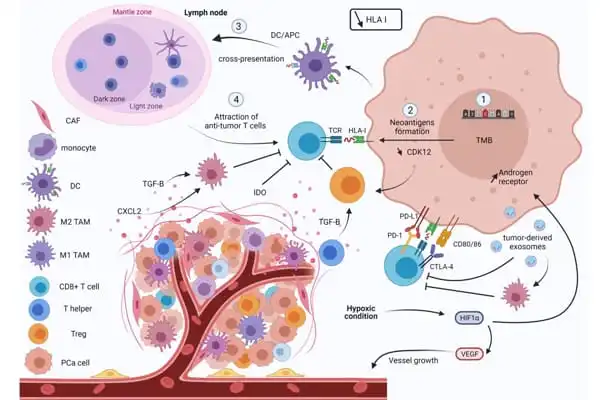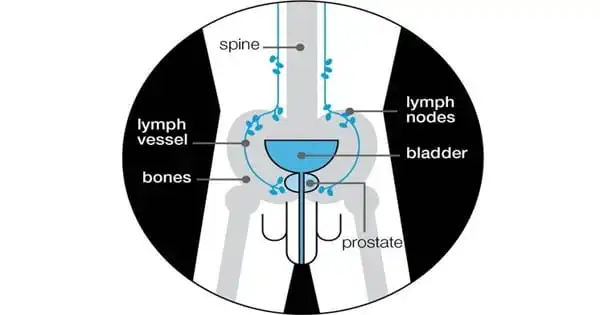Prostate cancer metastasis occurs when cells in the prostate break away from the tumor. Cancer cells can spread to other parts of the body via the lymphatic system or the circulation. Prostate cancer primarily affects elderly men. Six out of ten cases are diagnosed in men over the age of 65, but less than 1% in men under the age of 50. Prostate cancer can occur in males as young as their 30s and 40s, despite its rarity. Men with a family history of prostate cancer are more prone than the general population to develop the disease.
The majority of prostate cancers remain confined, giving affected men a reasonable chance of survival. However, roughly 20% of people acquire incurable metastatic prostate cancer, resulting in approximately 5,000 fatalities in Austria alone each year. Medical study has yet to explain why metastases occur in some persons but not others. A MedUni Vienna research team has uncovered specific alterations in a protein that trigger the growth and spread of prostate cancer. The findings were published recently in the journal Molecular Cancer.
The researchers broke new ground in the study by looking into the involvement of the protein KMT2C in prostate cancer. KMT2C is a genetic component that mostly regulates central cellular processes. If KMT2C loses its regulatory ability as a result of common cancer-related mutations, it promotes the proliferation of the cancer gene MYC. This, in turn, causes cells to divide at a faster pace, causing the cancer to develop and spread.
Our study provides new insights into the previously poorly understood transition from localized prostate cancer to terminal metastatic prostate cancer. Furthermore, knowledge gathered about the impact of KMT2C mutations may offer fresh momentum for the detection and treatment of prostate cancer.
Lukas Kenner
Approximately half of all men diagnosed with local prostate cancer will develop metastatic cancer over their lives. Early detection and treatment of cancer can help to reduce this rate. A tiny number of men are not diagnosed with prostate cancer until it has spread to other parts of their body. Doctors can find out if it’s metastatic cancer when they take a small sample of the tissue and study the cells.
New insights into the transition to metastasis
“Our study provides new insights into the previously poorly understood transition from localized prostate cancer to terminal metastatic prostate cancer,” says study leader Lukas Kenner (Department of Pathology at MedUni Vienna, Comprehensive Cancer Center of MedUni Vienna and University Hospital Vienna, Department of Laboratory Animal Pathology at Vetmeduni Vienna, and the K1 Center CBmed). Furthermore, knowledge gathered about the impact of KMT2C mutations may offer fresh momentum for the detection and treatment of prostate cancer.

KMT2C mutation status can be determined using a blood test, allowing for early detection of potentially aggressive progression in prostate tumors. Furthermore, MYC inhibitors may be employed to prevent excessive cell proliferation and thus metastasis, and it is believed that additional scientific research will support this. MYC inhibitors are essentially novel cancer treatment medications that have previously been examined in clinical trials and, if subsequent research confirm this, could be utilized in metastatic prostate cancer in the next years.
“Since a high level of KMT2C mutation characterises many types of cancer, such as breast, lung, colorectal, bladder and even skin cancer, our study results have a great deal of potential in the research, diagnosis and treatment of malignant cancers in general,” says Lukas Kenner.
Prostate cancer frequently spreads to the bones or lymph nodes. It can potentially spread to the liver or lungs. It is more uncommon for it to spread to other organs, such as the brain. Even when prostate cancer spreads, it is still prostate cancer. Metastatic prostate cancer in a bone in your hip, for example, is not bone cancer. It has the same type of prostate cancer cells as the initial tumor. Metastatic prostate cancer is a type of cancer that has spread to other parts of the body. There is no cure, although it can be treated and controlled. For many years, most men with advanced prostate cancer live a normal life.














